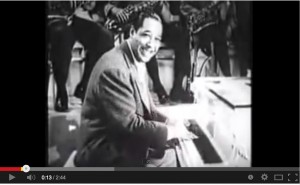About Writing, American Fairy Trilogy
On Diversity
by
This is going to be short and to the point:
We need more diversity in US publishing. There is no question. This is not limited to the very real need for more writers representing the full spectrum of the native and immigrant peoples of the USA, but we desperately, desperately need people from across a far wider range of ethnic and cultural backgrounds as editors, publishers and marketers. Because it is only when the institutions that create the books that most people still buy and read change their composition that we will get meaningful, lasting and needed change across publishing.
I admit that when I first came to the idea of fairies in America, I did not set out to write a heroine who had African Americans in her immediate ancestry. However, I’d been struggling over the nature of the Unseelie Court. I didn’t want it to be the court of monsters, as it frequently was in the older and more traditional legends. I wanted it to be not just dangerous and powerful, but attractive, mysterious. Glamorous.
I’d already settled on the idea that the Seelie Court was going to find its gateways in Hollywood. After all, this was the 1930s. Where was more intensely glamorous than Hollywood? But what about the Unseelie? Magic, in my stories, was going to be attracted to creativity, to beauty. What was the flip side of Hollywood?
I was grousing about this problem to my husband, and he looked at me and said. “You want a court? Count Basie, Duke Ellington, Lady Day…”
Of course. Of course. The Unseelie Court was jazz. The quintessential American art form, one of the few forms of music that is genuinely ours. The music that was insanely popular, roundly condemned, that opened doors, that changed the soundscape of the nation and the world for all time. Of COURSE. As soon as I had this in my head, new ideas and realizations started tumbling through my imagination.
One of them was that if I was going to do this, my heroine (I’m not sure if I’d even settled on her name yet), who was half-fairy, would also, as a daughter of the Unseelie court be half black. This would change her, because it would change how she thought of herself and how the world treated her, because it does.
That was it. More or less the whole of my decision process. History and magic and story demanded that the character be who she was and I tried to make it so. Is this a good reason? Enough of a reason? Should there have to be a reason? These are questions I don’t have an answer to. Did I do a good job with the character, her identity, her triumphs and struggles and friendships? I hope I did. I tried. Maybe I failed. Maybe because of my own background, and because of the stark, sad, complex and ongoing history of cultural appropriation, I can never do well enough. I don’t get to check out of history just because I’m a nice person. Wish I did, but there it is.
What I do know is what I said up top, this profession that I practice and love needs a much wider range of participants at the very top than it has. What I also know is this, if we as readers want to promote that idea, and that diversity, we need to take charge across the social media and talk about the titles and authors we love who represent the broad sweep of our culture. This will speak to the publishers in most basic language they understand…money and sales.
So, folks, here’s the question that can be answered. Who are you reading?
